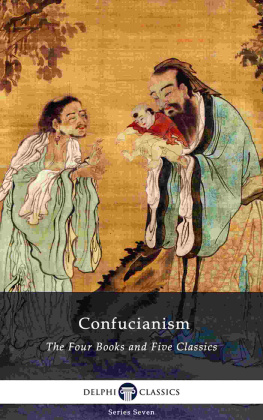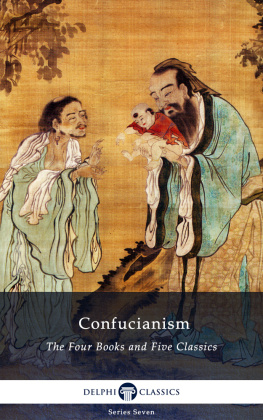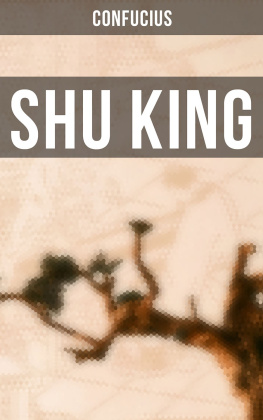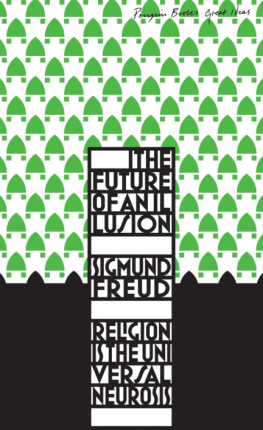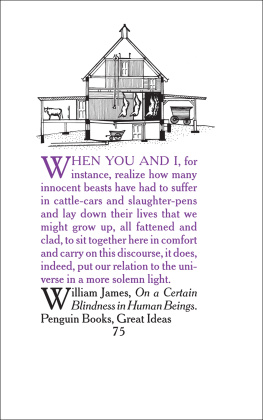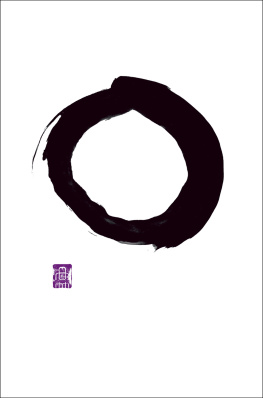Confucius
551479 BC
Confucius
The First Ten Books
TRANSLATED BY
D . C . LAU
PENGUIN BOOKS GREAT IDEAS
PENGUIN BOOKS
Published by the Penguin Group
Penguin Books Ltd, 80 Strand, London WC2 R 0RL , England
Penguin Group (USA) Inc., 375 Hudson Street, New York, New York 10014, USA
Penguin Group (Canada), 10 Alcorn Avenue, Toronto, Ontario, Canada, M4V 3B2 (a division of Pearson Penguin Canada Inc.)
Penguin Ireland, 25 St Stephens Green, Dublin 2, Ireland (a division of Penguin Books Ltd)
Penguin Group (Australia), 250 Camberwell Road, Camberwell, Victoria 3124, Australia (a division of Pearson Australia Group Pty Ltd)
Penguin Books India Pvt Ltd, 11 Community Centre, Panchsheel Park, New Delhi 110 017, India
Penguin Group (NZ), cnr Airborne and Rosedale Roads, Albany, Auckland 1310, New Zealand (a division of Pearson New Zealand Ltd)
Penguin Books (South Africa) (Pty) Ltd, 24 Sturdee Avenue, Rosebank 2196, South Africa
Penguin Books Ltd, Registered Offices: 80 Strand, London, WC2R 0RL , England
www.penguin.com
The Analects first published in Penguin Classics 1979
This extract published in Penguin Books 2005
Translation copyright D. C. Lau, 1979
Taken from the Penguin Classics edition of The Analects, translated and introduced by D. C. Lau
Except in the United States of America, this book is sold subject to the condition that it shall not, by way of trade or otherwise, be lent, re-sold, hired out, or otherwise circulated without the publishers prior consent in any form of binding or cover other than that in which it is published and without a similar condition including this condition being imposed on the subsequent purchaser
ISBN: 978-0-14-196722-6
Book I
1. The Master said, Is it not a pleasure, having learned something, to try it out at due intervals? Is it not a joy to have friends come from afar? Is it not gentlemanly not to take offence when others fail to appreciate your abilities?
2. Yu Tzu said, It is rare for a man whose character is such that he is good as a son and obedient as a young man to have the inclination to transgress against his superiors; it is unheard of for one who has no such inclination to be inclined to start a rebellion. The gentleman devotes his efforts to the roots, for once the roots are established, the Way will grow therefrom. Being good as a son and obedient as a young man is, perhaps, the root of a mans character.
3. The Master said, It is rare, indeed, for a man with cunning words and an ingratiating face to be benevolent.
4. Tseng Tzu said, Every day I examine myself on three counts. In what I have undertaken on anothers behalf, have I failed to do my best? In my dealings with my friends have I failed to be trustworthy in what I say? Have I passed on to others anything that I have not tried out myself?
5. The Master said, In guiding a state of a thousand chariots, approach your duties with reverence and be trustworthy in what you say; avoid excesses in expenditure and love your fellow men; employ the labour of the common people only in the right seasons.
6. The Master said, A young man should be a good son at home and an obedient young man abroad, sparing of speech but trustworthy in what he says, and should love the multitude at large but cultivate the friendship of his fellow men. If he has any energy to spare from such action, let him devote it to making himself cultivated.
7. Tzu-hsia said, I would grant that a man has received instruction who appreciates men of excellence where other men appreciate beautiful women, who exerts himself to the utmost in the service of his parents and offers his person to the service of his lord, and who, in his dealings with his friends, is trustworthy in what he says, even though he may say that he has never been taught.
8. The Master said, A gentleman who lacks gravity does not inspire awe. A gentleman who studies is unlikely to be inflexible.
Make it your guiding principle to do your best for others and to be trustworthy in what you say. Do not accept as friend anyone who is not as good as you.
When you make a mistake, do not be afraid of mending your ways.
9. Tseng Tzu said, Conduct the funeral of your parents with meticulous care and let not sacrifices to your remote ancestors be forgotten, and the virtue of the common people will incline towards fullness.
10. Tzu-chin asked Tzu-kung, When the Master arrives in a state, he invariably gets to know about its government. Does he seek this information? or is it given him?
Tzu-kung said, The Master gets it through being cordial, good, respectful, frugal and deferential. The way the Master seeks it is, perhaps, different from the way other men seek it.
11. The Master said, Observe what a man has in mind to do when his father is living, and then observe what he does when his father is dead. If, for three years, he makes no changes to his fathers ways, he can be said to be a good son.
12. Yu Tzu said, Of the things brought about by the rites, harmony is the most valuable. Of the ways of the Former Kings, this is the most beautiful, and is followed alike in matters great and small, yet this will not always work: to aim always at harmony without regulating it by the rites simply because one knows only about harmony will not, in fact, work.
13. Yu Tzu said, To be trustworthy in word is close to being moral in that it enables ones words to be repeated. To be respectful is close to being observant of the rites in that it enables one to stay clear of disgrace and insult. If, in promoting good relationship with relatives by marriage, a man manages not to lose the good will of his own kinsmen, he is worthy of being looked up to as the head of the clan.
14. The Master said, The gentleman seeks neither a full belly nor a comfortable home. He is quick in action but cautious in speech. He goes to men possessed of the Way to be put right. Such a man can be described as eager to learn.
15. Tzu-kung said, Poor without being obsequious, wealthy without being arrogant. What do you think of this saying?
The Master said, That will do, but better still Poor yet delighting in the Way, wealthy yet observant of the rites.
Tzu-kung said, The Odes say,
Like bone cut, like horn polished,
Like jade carved, like stone ground.
Is not what you have said a case in point?
16. The Master said, Ssu, only with a man like you can one discuss the Odes. Tell such a man something and he can see its relevance to what he has not been told.
The Master said, It is not the failure of others to appreciate your abilities that should trouble you, but rather your failure to appreciate theirs.
The whole of what follows is found also in IX.25.
This sentence is found again in IV.20.
Book II
1. The Master said, The rule of virtue can be compared to the Pole Star which commands the homage of the multitude of stars without leaving its place.
2. The Master said, The Odes are three hundred in number. They can be summed up in one phrase,
Swerving not from the right path.
3. The Master said, Guide them by edicts, keep them in line with punishments, and the common people will stay out of trouble but will have no sense of shame. Guide them by virtue, keep them in line with the rites, and they will, besides having a sense of shame, reform themselves.
4. The Master said, At fifteen I set my heart on learning; at thirty I took my stand; at forty I came to be free from doubts; at fifty I understood the Decree of Heaven; at sixty my ear was atuned; at seventy I followed my hearts desire without overstepping the line.
5. Meng Yi Tzu asked about being filial. The Master answered, Never fail to comply.
Next page

